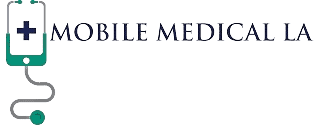
Advocacy News
NHIA Releases White Paper on Home Enteral Nutrition and the Impacts of Competitive Bidding
September 30, 2025
NHIA released a new white paper, “Trends in Home Enteral Nutrition—The Impacts of Competitive Bidding on Access and Quality,” which documents the declining payment structure for clinical services needed to support patients on home enteral nutrition. An estimated 220,000 individuals in the United States rely on home enteral nutrition (HEN), which demands clinical coordination, specialized equipment, disease-specific nutrition formulas, and a multidisciplinary team to ensure safety, efficacy, and quality of life.
But, the Medicare Competitive Bidding program, introduced in 2011, changed reimbursement, resulting in a model that lacks payment for the post-acute clinical services necessary to support positive patient outcomes on HEN. The program has gone through several bidding and implementation phases, as well as pauses. It is now in a temporary “gap period” awaiting a formal public notice and comment rulemaking process to make changes to the program.
Although government reports indicate that Competitive Bidding has not negatively impacted access to HEN, NHIA reviewed publicly available Medicare DME utilization data and found the number of suppliers billing for HEN kits has decreased by 31% over the past decade, while the number of Medicare beneficiaries accessing HEN has declined by 27%. The market conditions created by Competitive Bidding may influence other payor policies as well. According to reports, 1 in 4 HEN providers are considering or planning to discontinue providing HEN formulas or supplies due to cost pressures.
NHIA believes that certain reforms would improve outcomes and the quality of life in HEN patients, while lowering the total cost of care. CMS should perform a comprehensive study of HEN services, patient access, and impacts on overall costs of care; newly developed supplier standards should reflect clinical support expectations and standardized outcomes; and a new service code should be added for clinical activities such as performing nutritional assessments, monitoring nutritional status, making formula changes, troubleshooting problems, and providing nutrition education and support.
Related Posts
NHIA Releases White Paper on Home Enteral Nutrition and the Impacts of Competitive Bidding
September 30, 2025
NHIA released a new white paper, “Trends in Home Enteral Nutrition—The Impacts of Competitive Bidding on Access and Quality,” which documents the declining payment structure for clinical services needed to support patients on home enteral nutrition.
Joe Fiandra Access to Home Infusion Act of 2025 (H.R. 4993) Bill Summary
August 25, 2025
The Joe Fiandra Access to Home Infusion Act (H.R. 5397) was first introduced in the House of Representatives in September of 2023, and re-introduced on August 19, 2025 by Rep. Brian Fitzpatrick (PA-01). The bill mirrors a 2020 proposed rule from the Centers for Medicare and Medicaid Services (CMS) to modify the DMEPOS external infusion pump benefit.
Congressional Spending Bill Falls Short on Home Infusion
December 18, 2024
The National Home Infusion Association (NHIA) expressed deep concern today regarding the recently proposed government funding bill, which includes major changes to the qualifying criteria for drugs under Medicare’s home infusion benefit but fails to address the underlying flaws that have plagued the program. Without fixing the structure of the benefit, Medicare beneficiaries in need of home infusions for treatment of a variety of medical conditions, including rare diseases, are unlikely to gain access to home-based care.
The post NHIA Releases White Paper on Home Enteral Nutrition and the Impacts of Competitive Bidding appeared first on National Home Infusion Association.
